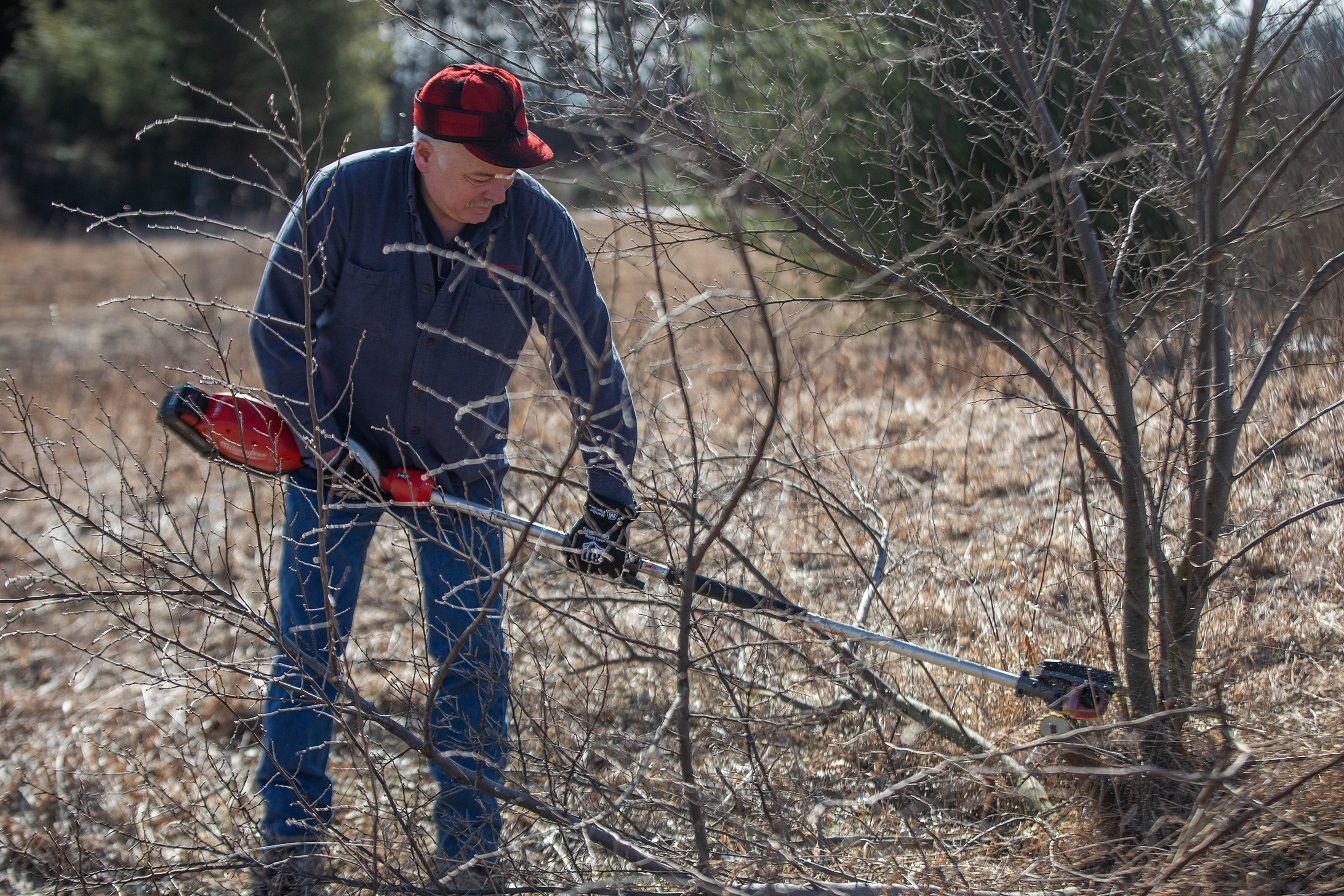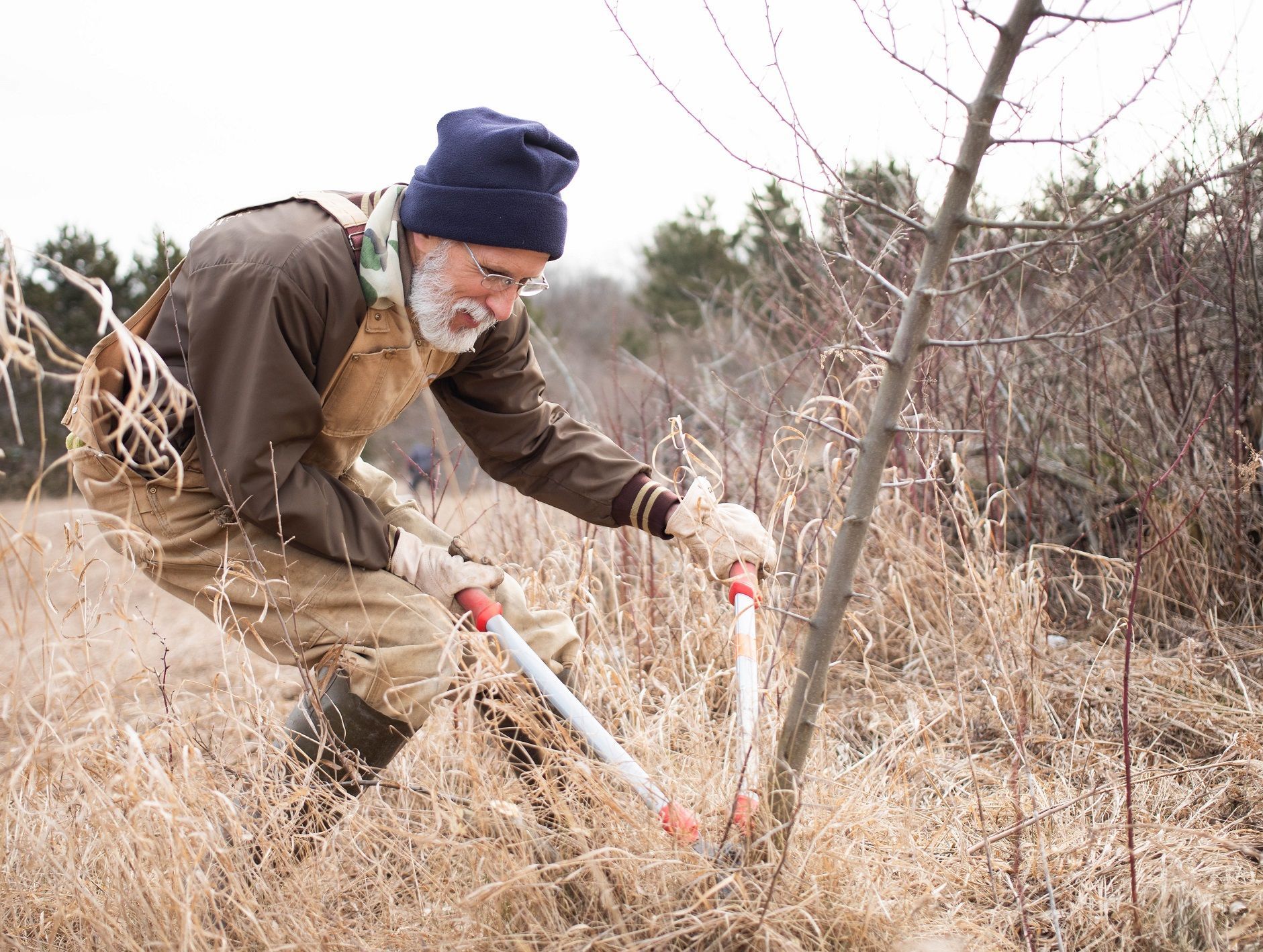Volunteers kick-off MUCC’s 2023 Annual Convention by enhancing wildlife habitat at Edmore State Game Area

MUCC Executive Board Vice President, Rob Miller, cuts down invasive autumn olive from an restored opening in Edmore State Game Area.
Late last week, volunteers helped us kick-off MUCC’s Annual Convention by volunteering for wildlife at a state game area that’s brand new to MUCC’s On the Ground (OTG) program!
On Friday, March 24, a group of 23 volunteers including boy scouts, local landowners, and MUCC staff, spent the morning cutting invasive autumn olive shrubs and constructing nearly 20 brush piles to enhance wildlife habitat at Edmore State Game Area (SGA) in Montcalm County. This work site is located in the Central Unit of the SGA and is new territory for OTG.
By removing invasive woody vegetation and creating large brush piles, volunteers helped provide supplemental cover and nesting habitat for a variety of wildlife from rabbits to woodcock. Brush piles are a critical component of quality small game habitat, and volunteers with the OTG program have contributed countless weekend hours creating these structures to enhance wildlife habitat on public lands throughout Michigan.

OTG volunteers used cut branches and brush to create brush piles for small game habitat.
We were fortunate to partner on this project with Michigan DNR biologist, James Miller, who oversees eight state game areas within Montcalm and Ionia counties. James made sure to add that volunteers are an integral part to habitat improvement efforts on state-managed lands.
We greatly appreciate the many participants that put in the time and effort to join us in conserving and enhancing Michigan’s public lands and wildlife through volunteer stewardship.
Click here to watch a video recap of the project. To learn more about OTG and upcoming volunteer events, please visit mucc.org/on-the-ground or find us on Facebook and Instagram (@mucc1937). If you like what we’re doing and want to support our mission, join or donate here.
Recent Posts



